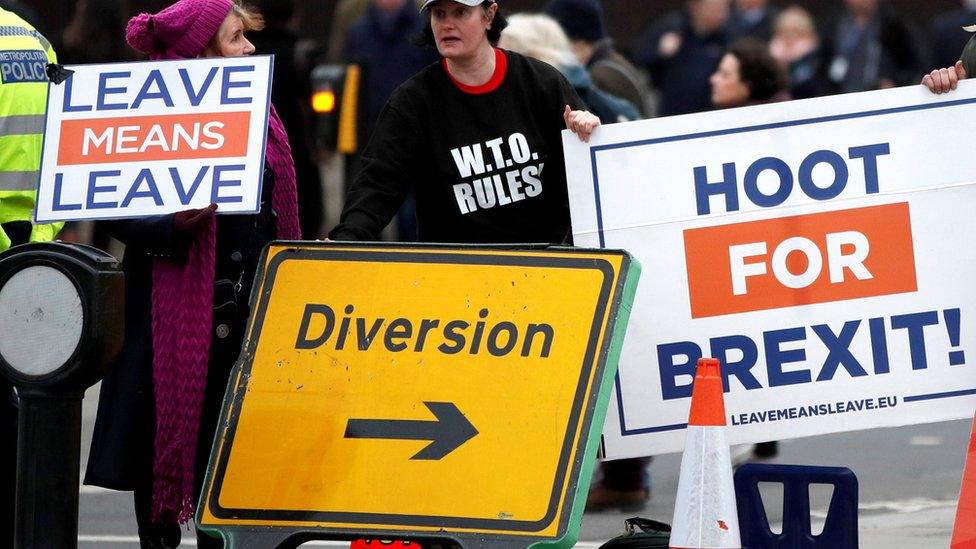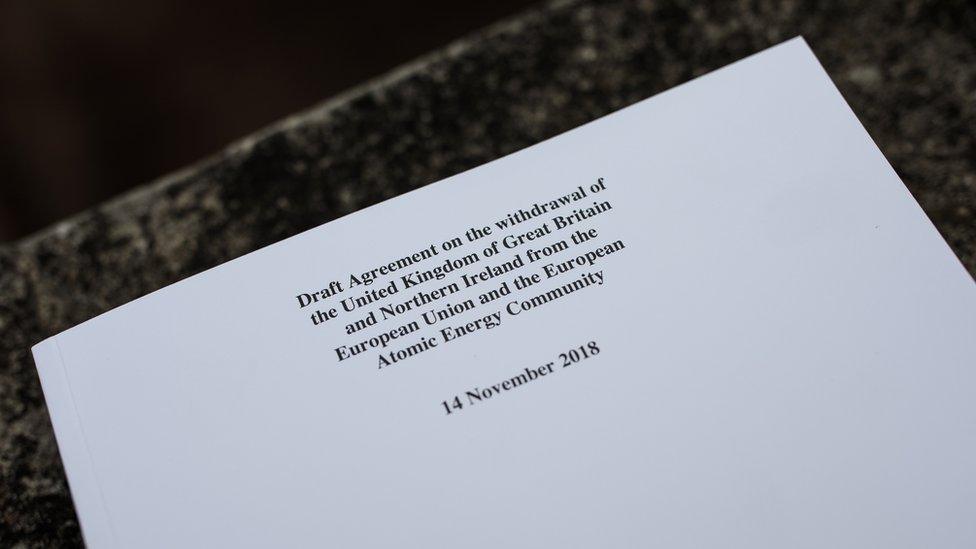Brexit: Could 'customs co-operation' bridge a gap?
- Published

The government says it is in listening mode when it comes to alternatives to the backstop.
As we know, the EU is deeply sceptical about reopening the withdrawal agreement and possibly changing the backstop.
But Germany has suggested it is open to "creative" solutions, with its Chancellor Angela Merkel saying she would listen to proposals to solve the Irish border "riddle".
So what might the solution be?
Firstly, there are a lot of ideas being floated in Westminster and some will lead nowhere. But it is interesting to look at the proposals being circulated in the corridors of power.
One obtained by the BBC has been dubbed "customs co-operation".
Its authors say it "builds on the detailed negotiations of the withdrawal agreement, whilst trying to bridge the gap between ardent Remainers and Leavers".
It is understood it has been circulated among various MPs, and ministers and officials in Whitehall are currently studying the plan.
Under the proposal:
EU customs officials would be given full access to UK ports after Brexit - close to equivalent of their British counterparts
That would give them powers to ensure cross-border security
What has been referred to as "enhanced co-operation" would also ensure regulations are implemented
The UK would pay to remain part of EU databases Vies (covering VAT), Traces (covering trade of livestock) and Europol (covering law enforcement)
A joint committee would be set up to provide some sort of governance
Ultimately, if successful, this would provide a framework for a future trade deal
Some of this might sound familiar - some of the proposals are in the current withdrawal agreement. Likewise, a few of the ideas are borrowed from Brexiteer proposals on customs published last year.
But significantly it is former Remainers - who want a close economic relationship with the EU - who are said to be pushing this proposal.
It is important to stress this is not an official government plan at the moment, and it might never be.
But because it is based on existing technology, it is the sort of idea some in Whitehall are hoping could provide a blueprint for an alternative to the backstop.
One source close to Downing Street said it was being considered at the highest levels - albeit along with other variations and other ideas.
Another source said it had been well received by key figures involved in talks on backstop alternatives.
It has been suggested by some MPs that it could end up being part of the so-called Malthouse Compromise, if the government decides to embrace that idea.
Quick recap: Under the Malthouse plan, we still leave on 29 March, but the UK would seek to extend the transition until the end of 2021 and replace the backstop. If that failed, the 2021 date would mean there is more time to prepare for no deal.
Of course, the European Union has also been highly sceptical of some of the ideas we have heard so far.
But if the government does take Malthouse forward, proposals like this one give us an idea of what it might look like.
- Published6 February 2019
- Published5 February 2019

- Published4 February 2019
